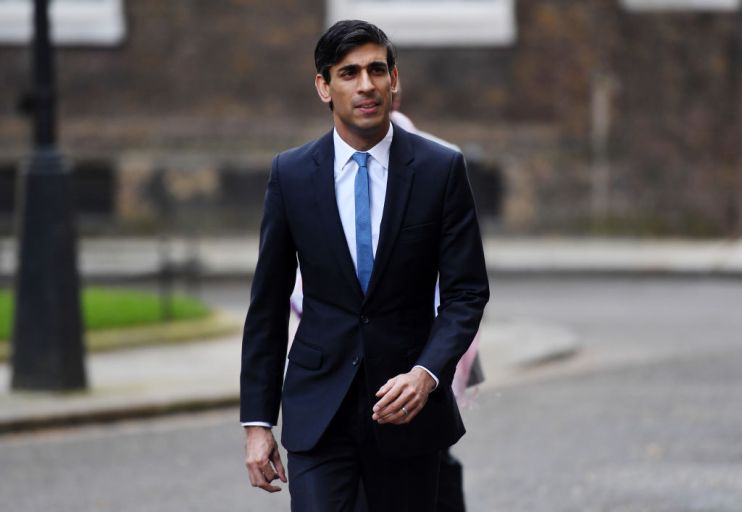UK borrowing higher than expected before coronavirus lockdown

The UK went over its borrowing target for the most recent financial year, it revealed today, but coronavirus spending is set to dwarf its budget deficit.
Borrowing between April 2019 and March 2020 rose to £48.7bn, compared to forecasts of £47.4bn, according to the Office for National Statistics (ONS).
But a swathe of public spending pledges is likely to see borrowing rocket in April and beyond. Some estimates place UK borrowing at £300bn this year.
Spending plans include £330bn in the form of loans to small businesses and a guarantee to pay 80 per cent of staff wages during the coronavirus lockdown.
Biggest impact from coronavirus yet to come
“The coronavirus (Covid-19) pandemic is expected to have a significant impact on the UK public sector finances,” the ONS warned, adding the impact was “relatively limited” in the latest available data.
“These effects will arise from both the introduction of public health measures and from new government policies to support businesses and individuals.”
The £48.7bn annual borrowing figure was £9.3bn more than the previous year. And borrowing in March alone hit £3.1bn, almost £4bn higher than March 2019’s £891m surplus.
March’s deficit stood at £3.05bn, higher than a Reuters forecast of a £2.35bn shortfall.
And the ONS warned: “It is likely that borrowing in March will be revised upwards in future months.”
The Office for Budget Responsibility (OBR) has warned the UK economy could shrink by 35 per cent in the second quarter and net borrowing could reach £271bn this year. That would be the largest peacetime borrowing ever.
And research by think tank the Centre for Policy Studies has warned UK borrowing could balloon to £300bn this year on government spending to soften the economic blow from coronavirus.
Falling tax shows March impact of coronavirus
Howard Archer, chief economic adviser to the EY Item Club, said there were early signs of coronavirus’ impact.
Central government receipts fell 0.7 per cent year on year for March. Income and capital gains tax receipts also dropped 3.3. per cent in March. And corporation tax receipts fell 1.8 per cent, with VAT receipts only 0.1 per cent higher year on year.
“This was limited by companies being allowed by the government to defer VAT payments to help them combat the impact of coronavirus on their activity,” Archer said.
“Meanwhile, central government expenditure increased 12.3 per cent year-on-year as it started to be pushed up by government measures to support the economy.”
PwC chief economist John Hawksworth said extra NHS spending and less tax helped push the budget deficit higher.
“These historic figures are rapidly being overtaken by events,” he added. “And we estimate that the budget deficit in 2020/21 could rise sharply to around £180bn-260bn.” That would be as much as 12 per cent of GDP, up from 2.2 per cent in 2019/20.
“This sharply rising deficit will be due both to the cost of the measures rightly taken by the government to support the economy through the Covid-19 crisis, and the dampening effect on tax revenues of significantly lower economic activity in the short term due to the lockdown.”
The government today said it would try to raise £225bn of debt to fuel its coronavirus spending.
The Treasury aims to raise £180bn from investors in the bond markets over the next three months. That is on top of £45bn it has committed to raising in April.